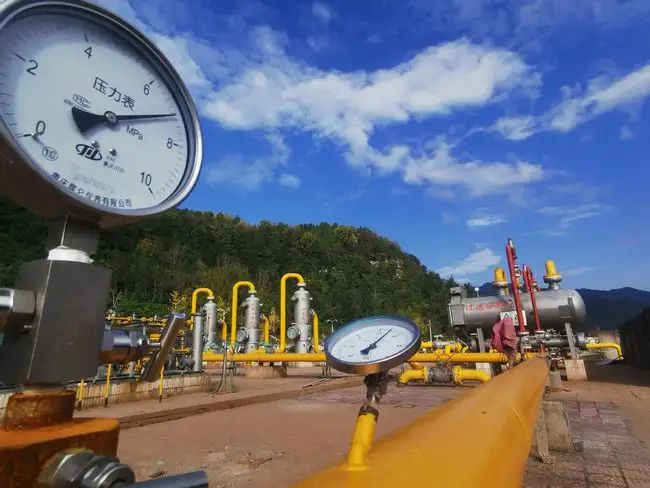According to the New York Times on March 25, European Union countries have agreed to join forces to buy and store natural gas, hydrogen and liquefied natural gas to meet the challenge of protecting Europeans from rising energy costs while reducing their dependence on Russia. However, they did not put a cap on energy prices.
European leaders announced the decision Friday, the report said. It follows a series of historic summits on Thursday. They held meetings with NATO and the GROUP of Seven industrialized nations, including U.S. President Joe Biden, in an effort to align themselves against Russia.
Willing EU member states could unite to negotiate gas purchases together and increase their bargaining power to influence energy prices, the report said. Ukraine, Georgia and Moldova, as well as countries in the Western Balkans, could join in the collective procurement of gas.
Storage capacity could be shared, so that all EU countries have adequate supplies ready for the coming winter. The leaders also backed a European Commission proposal to fill 80 per cent of underground gas storage facilities by November this year and 90 per cent by 2023, leading to large-scale purchases in the coming months. That is much higher than the current storage capacity of about 25%, Commission officials said.
European Commission President Ursula von der Leyen says Europe accounts for 75 percent of the global market for piped gas.

"We will now use our collective bargaining power," Von der Leyen told reporters Friday night. Rather than bidding against each other and driving up the price, we pool our demand."
But the fierce and protracted debate over how to wean the EU off Russian gas imports highlights how controversial energy policy is for EU member states and the limits of a common EU response to Russia's special military action, the report said.
While the EU as a whole relies heavily on Russia -- providing nearly 40 percent of the BLOC's gas and more than 25 percent of its crude oil -- the energy mix and interests vary, the report said.
Energy prices have reportedly been out of control since Last October, and the Conflict between Russia and Ukraine has further exposed the WEAKNESS of the EU. Unlike the United States, Europe has not imposed an embargo on Russian gas and oil, but has imposed other sanctions.
A coalition of southern European countries, led by Spain and Italy, has argued for a cap on energy prices across the European Union, arguing that such a measure would protect households and businesses. But the Netherlands and Germany strongly oppose the idea, saying it would distort the market and ultimately benefit Russian energy producers. On Friday, European leaders agreed to continue discussing whether and how short-term measures like price controls would work.
Most of the gas replenished in the EU is liquefied natural gas, but global production is limited and there are buyers, the report said. Over the past few months, the Commission has been in contact with gas producers including the US, Qatar, Azerbaijan, Nigeria and Egypt, as well as importers such as Japan and South Korea, to see if they could divert some of their supplies to Europe.

According to the RT website of March 25, Ursula von der Leyen, president of the European Commission, told reporters on Friday that the EU would buy natural gas itself and distribute it among member states. The move comes as European leaders seek to wean themselves off gas imports from Russia, while the US waits for its higher-cost gas to be shipped to Europe.
Von der Leyen has pledged to reduce Europe's dependence on Russian gas, but some EU countries still rely on Russia for steady supplies, the report said. German leaders recently warned that their economy could collapse if sanctions were imposed on gas imports from Russia. Germany depends on Moscow for more than half of its gas supplies.
However, reports say German leaders have balked at Russian President Vladimir Putin's request earlier this week to buy Russian gas in rubles. If, as is likely to happen, the EU refuses to pay in roubles, its member states will have to source gas elsewhere. The US is likely to fill the gap. At a joint news conference with U.S. President Joe Biden on Friday, Von der Leyen said Washington would increase shipments of liquefied natural gas to "at least 50 billion cubic meters" a year, replacing a third of the gas currently supplied by Russia.
However, the report stressed that LIQUEFIED natural gas in the United States is more expensive than In Russia and must be compressed before being shipped to Europe, where it is turned into gas at purpose-built ports. There are more than 20 LNG import terminals in Europe, but none in Germany.

